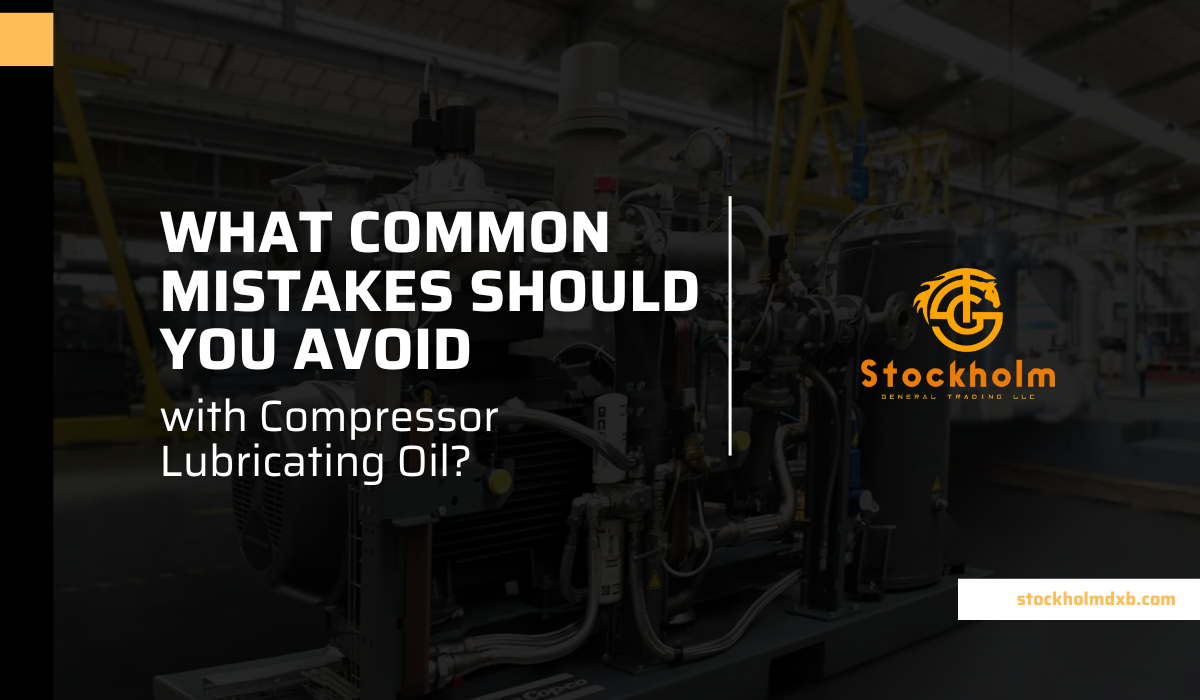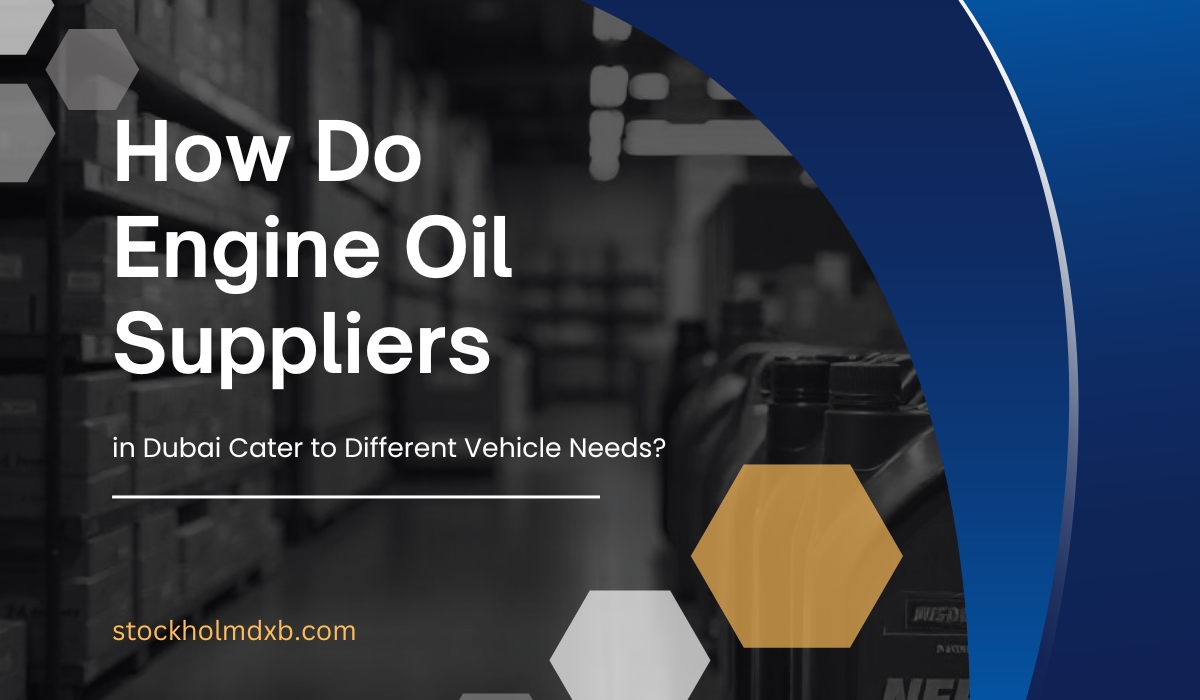Maintaining your car’s health hinges on selecting the right lubricants, making it essential to choose the best products from a reliable Industrial Oil provider in the UAE like Stockholm General Trading LLC. Grease and automotive oil are vital for reducing friction, preventing wear and tear, and extending the life of your vehicle. However, with so many options available, how do you determine the best choice for your car?
In this guide, we’ll explore everything you need to know about selecting the right grease and automotive oil for your vehicle. From understanding the various types of oils to identifying your car’s specific requirements, we’ve got you covered.
Understanding the Basics: What Is Automotive Oil?
Automotive oil, also known as engine oil, serves as a lubricant within internal combustion engines. Its main purpose is to minimize friction between moving engine parts, thereby preventing overheating and wear. Additionally, it helps clean the engine, protect against corrosion, and improve sealing.
There are three main types of engine oil:
Conventional Oil: Derived from crude oil, this is the most basic type of engine oil. It is typically used in older vehicles and those with simpler engine designs.
Synthetic Oil: Chemically engineered for superior performance, synthetic oil offers enhanced protection, especially in extreme temperatures, making it ideal for high-performance engines.
Synthetic Blend Oil: A mixture of conventional and synthetic oils, this option provides better protection than conventional oil and is more affordable than full synthetic oil.
What Is Grease and Why Is It Important?
While engine oil ensures your engine operates smoothly, grease is used to lubricate other components of your car, such as wheel bearings, joints, and chassis. Grease is thicker than oil and remains in place longer, making it perfect for parts that don’t require constant movement.
The primary benefits of using grease include:
Reduced Wear and Tear: Grease forms a protective layer that minimizes friction, helping components last longer.
Corrosion Prevention: It seals out moisture and contaminants, thereby preventing rust and corrosion.
Enhanced Performance: Properly greased parts move more freely, which improves overall vehicle performance.
How to Determine Your Car’s Oil Requirements
Every vehicle has specific oil requirements, typically detailed in the owner’s manual. However, understanding these basics can help you make an informed decision:
Viscosity Grade: This indicates the oil’s thickness and how it flows at different temperatures. Represented by a number followed by a “W” (for winter) and another number, like 5W-30, the first number shows how the oil flows in cold conditions, while the second indicates its flow at operating temperature.
API Service Rating: The American Petroleum Institute (API) assigns ratings that reflect oil quality. Ensure the oil meets or exceeds the manufacturer’s recommendations.
Additives: Modern oils often contain additives like detergents, dispersants, and antioxidants to enhance performance. Understanding these can help you select an oil that offers optimal protection for your engine.
How to Determine Your Car’s Grease Needs
Selecting the right grease for your car requires an understanding of your vehicle’s specific needs:
Temperature Range: Consider the operating temperature of the parts you’re lubricating. High-temperature areas, such as wheel bearings, require grease that can withstand extreme heat.
Load-Bearing Capacity: Parts like ball joints experience high loads, requiring grease with high load-bearing capacity, such as Moly grease.
Water Resistance: If you live in a wet climate, opt for grease with excellent water resistance, such as calcium-based grease.
Conventional vs. Synthetic Oil: Which Is Better?
Many car owners wonder whether to use conventional or synthetic oil. The answer depends on several factors:
Engine Type: High-performance engines often require synthetic oil due to its superior protection and ability to withstand extreme temperatures.
Driving Conditions: If you frequently drive in extreme conditions, such as very hot or cold climates, synthetic oil is the better choice.
Budget: Although synthetic oil is more expensive than conventional oil, it offers better protection and lasts longer, potentially saving money over time.
The Importance of Regular Oil and Grease Changes
Regularly changing your car’s oil and grease is crucial for maintaining its health. Over time, these lubricants break down and lose effectiveness, leading to increased friction and wear.
For most vehicles, it’s recommended to change the oil every 3,000 to 5,000 miles, depending on the type of oil used and driving habits. Grease should be checked and replaced as needed, typically during routine maintenance checks.
The Right Grease and Oil Make All the Difference
Choosing the correct grease and automotive oil is essential for ensuring your car runs smoothly and has a long life. By understanding your vehicle’s needs and considering factors like viscosity, temperature, and load-bearing capacity, you can provide the best protection for your car.
Regular maintenance, including timely oil and grease changes, is key to avoiding costly repairs and keeping your vehicle in top condition. So, when it’s time for a change, be sure to choose products from a trusted Industrial Oil provider in the UAE like Stockholm General Trading LLC—you’ll be glad you did.






